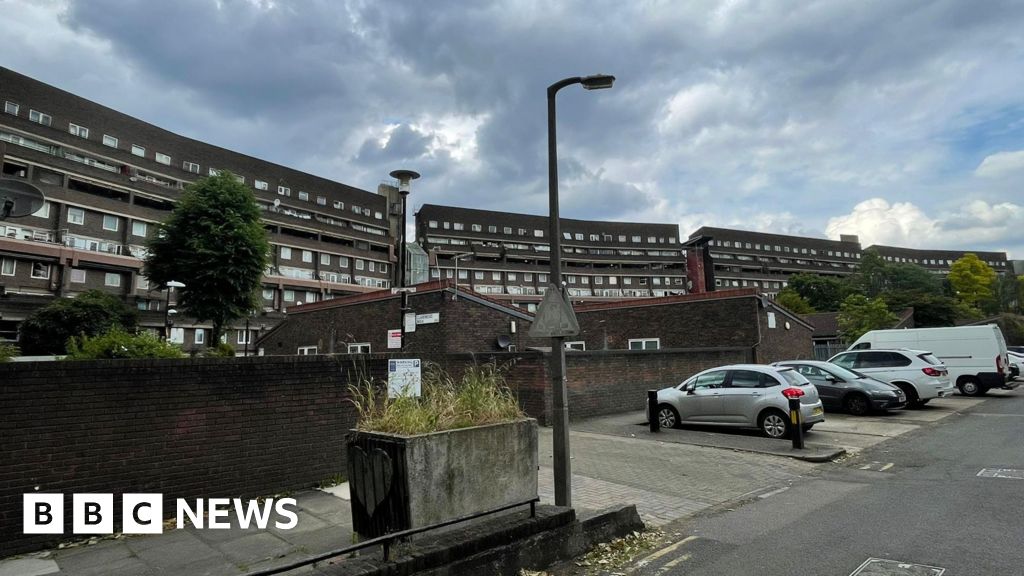By Tarah Welsh, BBC News
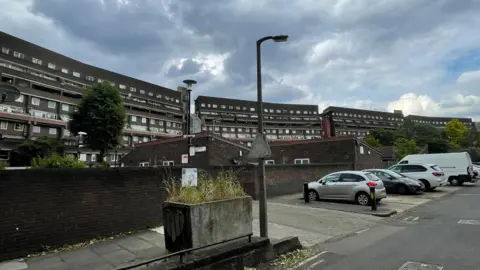 Nathan Welsh
Nathan Welsh A London council has been forcing residents into silence as a condition of them receiving money owed to them for building work and services they had been overcharged for – in some cases by tens of thousands of pounds.
Lambeth Council was asked by the BBC how many leaseholders it had asked to sign confidentiality clauses or non-disclosure agreements (NDAs) over a period of five years. It said 136 residents had entered into confidentiality agreements.
The Labour-run council has paid out nearly £1.6m in building works refunds to these residents, at an average of more than £11,500 per case. Leaseholders have told the BBC how they were refunded after being charged for shoddy work to their homes – and sometimes for work that never took place at all.
They had to make a legally binding commitment not to tell anyone – including their neighbours – about this.

Lambeth Council has about 9,400 leaseholders and is the freeholder of many flat blocks. It owns some properties outright as council homes.
When major works are needed on a building, such as window and roof repairs or external painting, the costs are divided up between the leaseholders and the council. Leaseholders are obliged to pay for their share of the work as a condition of their lease.
Speaking about the council’s demands for secrecy, Tracey Gregory, who has owned her home in Lambeth for 23 years and whose bill was eventually cut by the authority, told BBC London: “They don’t want us to tell our neighbours so they can’t apply for the same reductions.”
We asked the council why it legally prevents people from telling others about their refunds and it said this was “to avoid other leaseholders from using arguments made in separate and unrelated disputes. This enables the council to handle disputes on a case-by-case basis.”
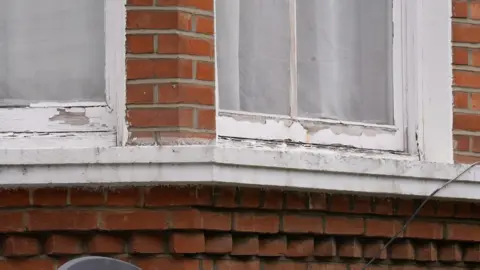
Just before Christmas in 2016, Tracey received a notice that work on her street was estimated to cost her about £12,000. She understood that it needed doing and paid the bill.
The work was completed in 2017 but she did not receive a final bill until 2020 – which was for £21,000. She says others received final bills of between £15,000 and £65,000.
“We are just regular people with regular jobs; we don’t have thousands of pounds lying around… when you get the final bill you have to pay within 10 days,” she says.
‘Sign it or we will retract our offer’
The contractors had billed the council a total of £2.6m for work to the homes on Tracey’s side of the street. She says they were charged for loft insulation and the replacement of guttering and downpipes – work that was not done.
A breakdown that has been seen by the BBC showed that £37,000 had been charged for replacing gates.
“They said they had replaced all of the side gates – they hadn’t,” Tracey says.
After years of going back and forth with Lambeth Council, she says she was offered a refund of 36% but when the paperwork came through it had an NDA attached. She refused to sign it – leaving her able to speak to the BBC without fear of legal reprisals.
“They said you have to sign it or we will retract our offer,” Tracey says.
In a statement, the council justified the use of these clauses, stating: “Confidentiality is one of the cornerstone principles of mediation.”
It added that the settlements were used to “resolve disputes and avoid the stress, time, costs, and incurrence of court resources” .
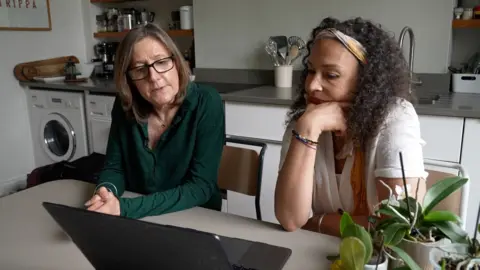
The BBC has seen an email from Lambeth Council to Tracey stating that she would have to pay the full amount as she had not signed the settlement deal. When she sought legal advice, the council backed down.
It has been estimated by a volunteer group that the council overpaid the contractors £720,000 for the project on her street.
Tracey says the practice of silencing leaseholders is completely unreasonable, adding: “The only reason companies use NDAs is to hide something.”
She also believes the council has been trying to hide its poor contract management.
“The contractors are being paid for work they are not doing, so to protect their own finances [the council] pursues leaseholders to the nth degree when, actually, they should be pursuing the contractors,” she says.
Tracey says some residents in their 80s were told to “go to the bank and get a loan” to pay what they owed. She and others helped get the costs down for elderly neighbours but she says arguing with the authority for five years has taken its toll.
“It takes a lot of strength to keep battling,” she says.
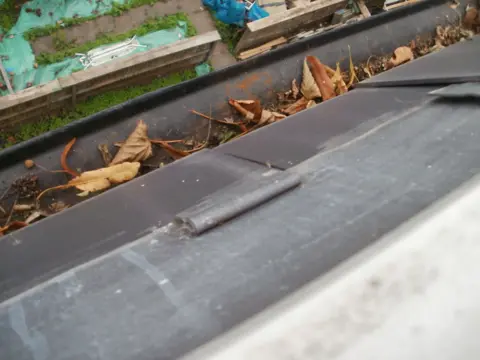 Contributor
Contributor The council told BBC London that a “confidentiality provision… is not the same as a standalone non-disclosure agreement”, but it added that it was changing the way it approached entering into these agreements.
It said: “Having received bespoke external legal advice, the council has been advised to improve its processes and introduce best practice by asking parties to sign a confidentiality agreement before any potential negotiation.”
Another leaseholder, Emma – not her real name – says she was told by the council that her share of the cost of the works to change the windows and repaint the exterior to her building could be nearly £70,000.
She challenged the council, and was later to discover it had contacted her mortgage adviser to say she was in breach of her lease.
Emma eventually managed to get the bill down to £26,000, which she paid, but she still believes she was overcharged and says the standard of the work done was “terrible”.
She says the experience was so “incredibly stressful” she sold her flat because she wanted to get away.
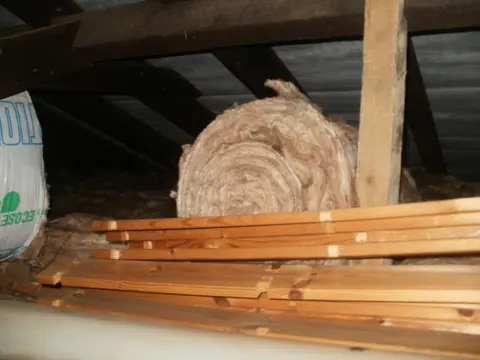 contributor
contributorPublicly available data shows the highest refund given by Lambeth Council was £63,000. This suggests that if that individual had not fought the bill, they would have been overcharged by tens of thousands of pounds.
In a freedom of information request, BBC London asked the council whether it knew how many other leaseholders were entitled to a payout.
It said: “Settlement agreements are tailored to address the unique factual circumstances… it would not be appropriate or possible to extrapolate the outcome of a particular individual matter and apply it unilaterally across multiple properties or large-scale major works contracts.”
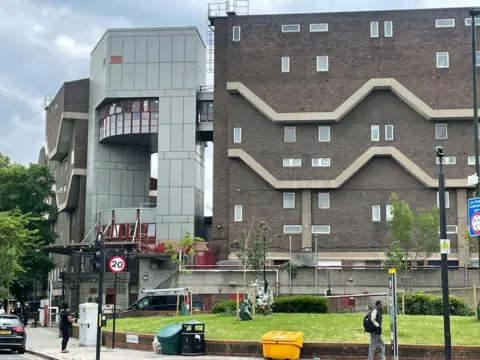 Nathan Welsh
Nathan Welsh BBC London has spoken to three people who say they had to sign an NDA to get some of their money back after being overcharged.
One of them, Richard – not his real name – said: “They do it to silence you so you can’t tell your neighbours.”
He was refunded several thousand pounds after an independent surveyor confirmed the cost of repair work to the exterior of his building had been inflated, and that he should only have been charged a quarter of what he was originally billed – which was more than £10,000.
The BBC is not revealing the exact figure to protect the identity of Richard, who says: “At the very least, it’s gross negligence from the council.”
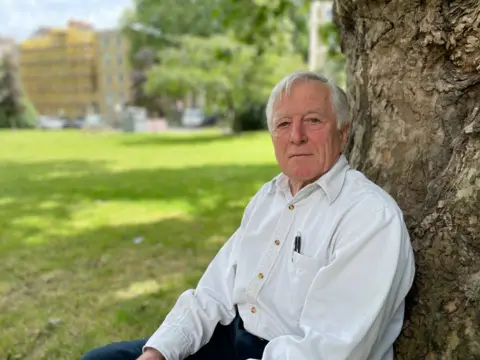
Antony Wynn from the Lambeth Homeowners’ Association, which has about 1,000 members, says he has heard many stories like Tracey’s, Emma’s and Richard’s.
“My telephone never stops ringing off the hook every day. There’s been horrific stories, and it just goes on and on.”
He says the council is being consistently overcharged by contractors and is passing on “massive bills” to its leaseholders and, despite repeatedly acknowledging the overcharging, is not investigating the issue properly.
The “total attitude and culture of the council is pushing back and not even beginning to want to address the problem”, he says.
Rather than investigating, officers threaten people with repossession if they do not pay up, Antony says, adding: “People end up as nervous wrecks; we have had people on our forum feeling suicidal.”
He says after long disputes, some residents have won back up to £40,000. He describes the scale of the overcharging as “mind-blowing” and believes the use of confidentiality agreements shows the council is “trying to hide their own mismanagement”.
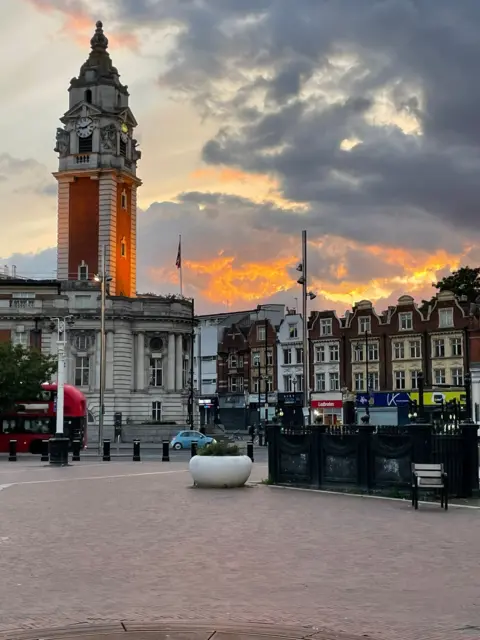 Nathan Welsh
Nathan Welsh Lambeth Council told us: “We work hard to ensure that all the work is carried out as professionally and economically as possible. Contracts are tendered under established rules, and we have a team of professionals who ensure the comprehensive management and auditing of all the works, costs and progress.
“The council makes an estimate of the costs, and then charges leaseholders, who have the option of paying in installments. We are happy to discuss any issues with leaseholders and work with them to resolve any issues.”

Another leaseholder involved in the fight with the council is Alasdair Ross.
The software engineering manager said he was in shock when a bill for £18,000 arrived at his flat in Brixton.
He told BBC London how he experienced “a rush of cold sweat – how am I going to find that money?”
He says the letter requested he pay in full within 30 days, or he could pay £300 a month for five years, on top of what he describes as his “obscene” service charge of £640 a month.
Alasdair says the work for a new central heating system in his block had been planned three years before he moved in and he had not been notified of any works or upcoming bills in the four years he had been there.
Challenging the bill took him about 18 months and, in that time, he says he was sent threatening letters by the council telling him it would contact his mortgage provider to say he was in breach of his lease – which the council did.
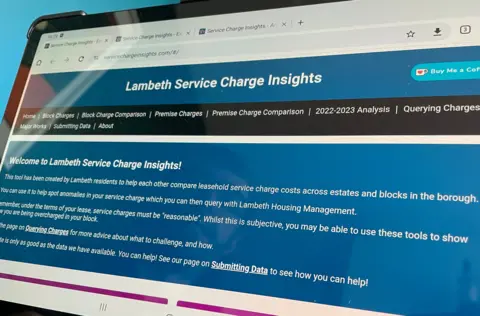
Alasdair, who did not have to enter into a confidentiality agreement, says that after a long process, the council conceded it had not consulted on the work correctly and his bill was capped at £250.
He says he asked council officers if they would inform the other 36 leaseholders about the “mistake” but was told they would not.
“I was just appalled,” he says. “For a public body to continue taking money when they know they’ve made a mistake, that just seems wrong.”
A Lambeth Council spokesperson said: “As a landlord, the council is responsible for day-to-day repairs, maintenance and major works at our buildings, to ensure they are safe and secure for all our residents.
“Under the terms of their lease agreements, leaseholders, as well as the council, are required to pay a share of the costs of this work.”
Listen to the best of BBC Radio London on Sounds and follow BBC London on Facebook, external, X, external and Instagram, external. Send your story ideas to hello.bbclondon@bbc.co.uk

